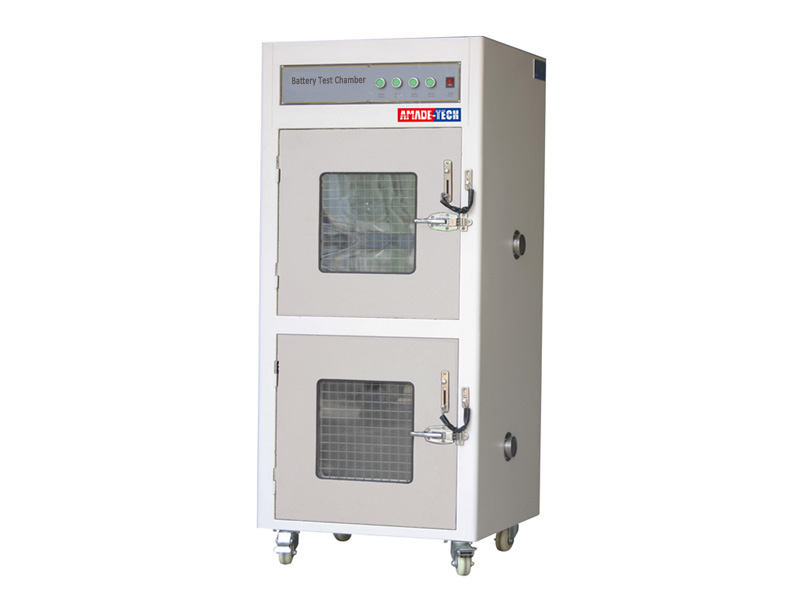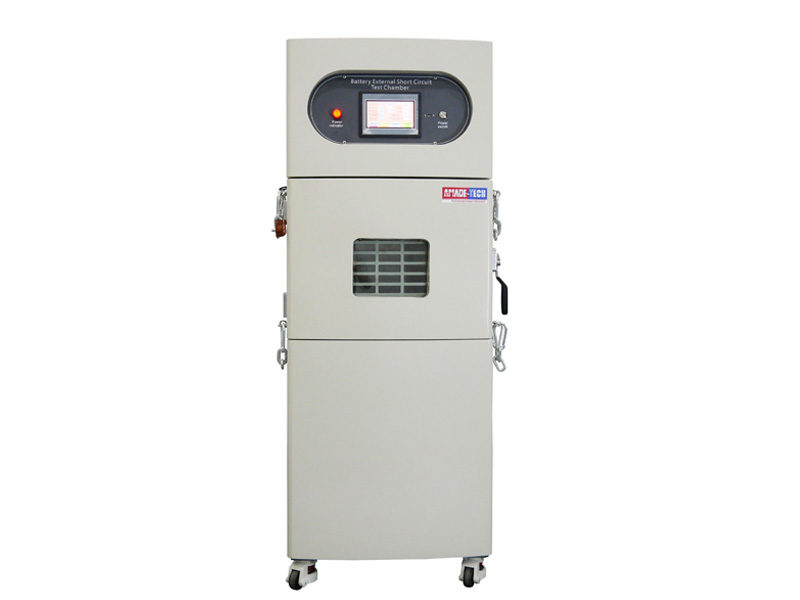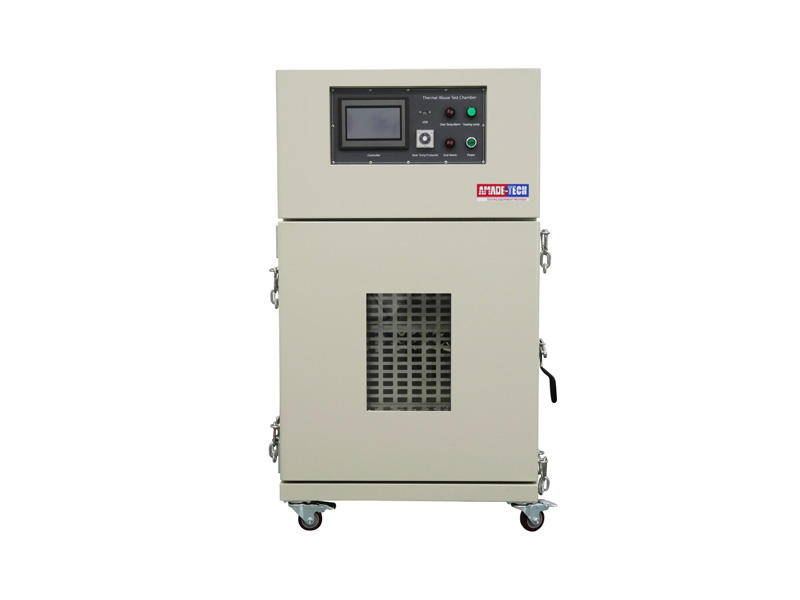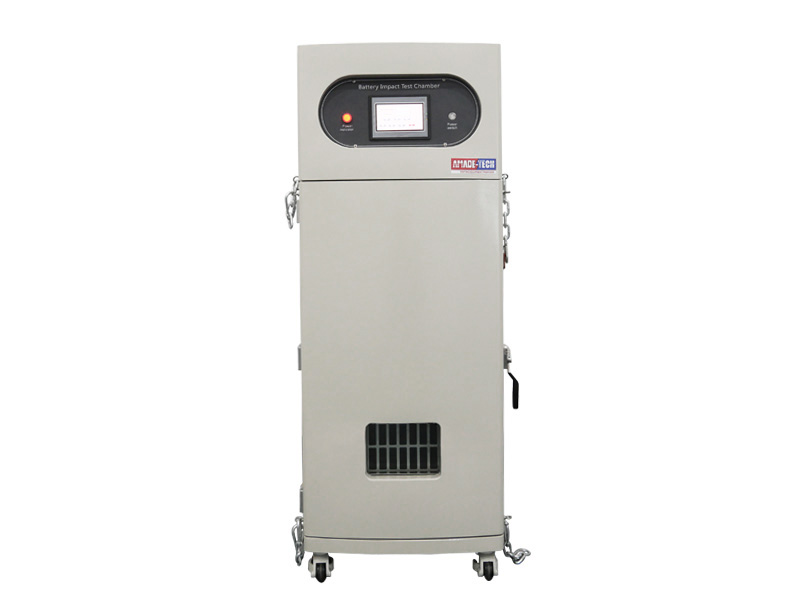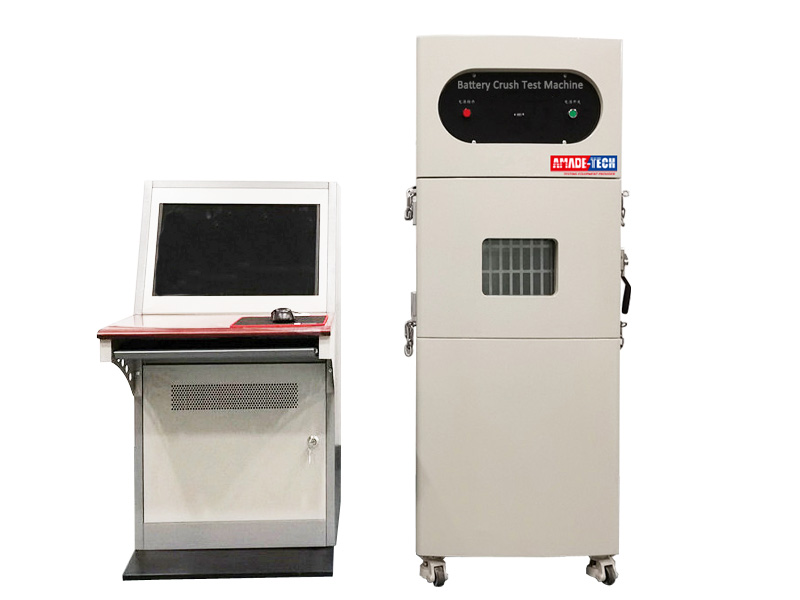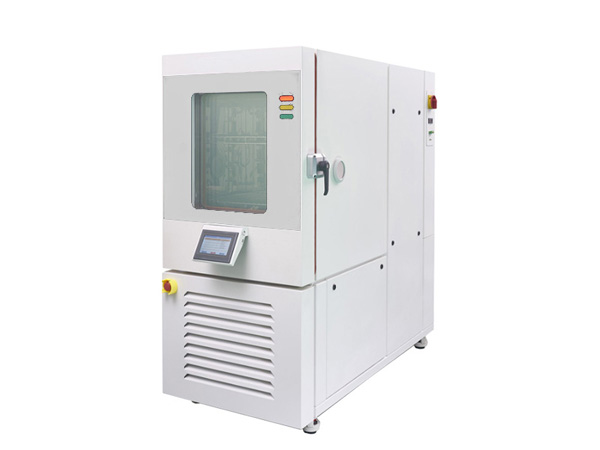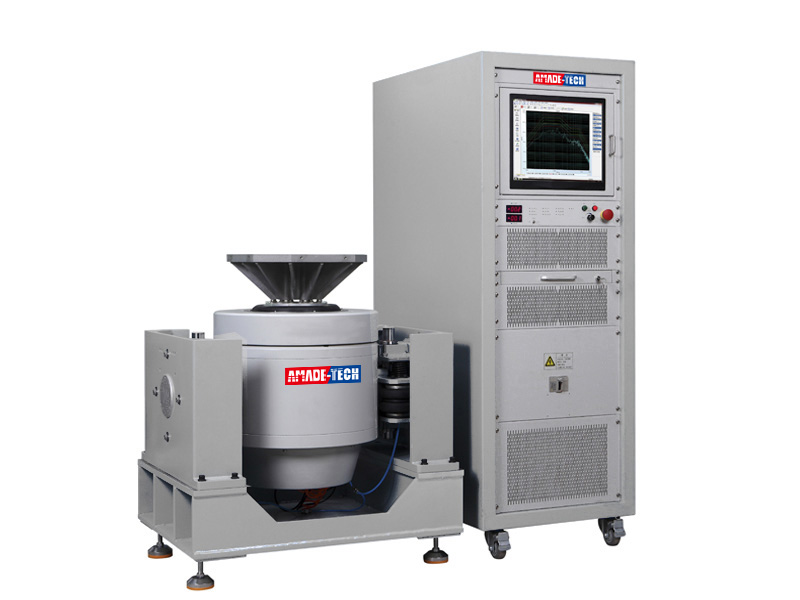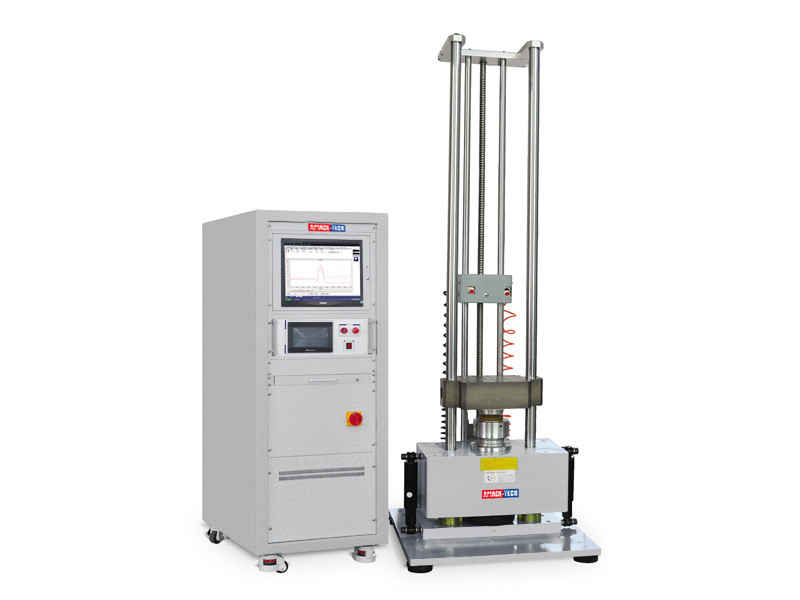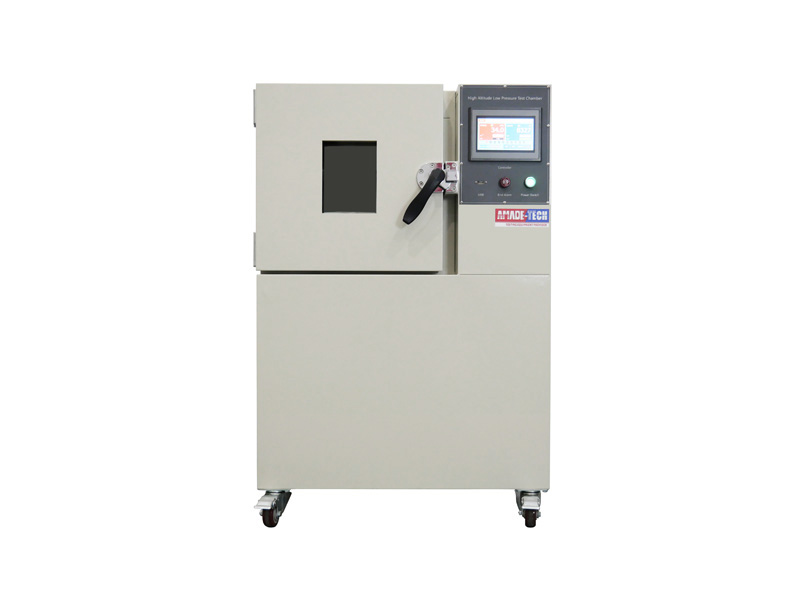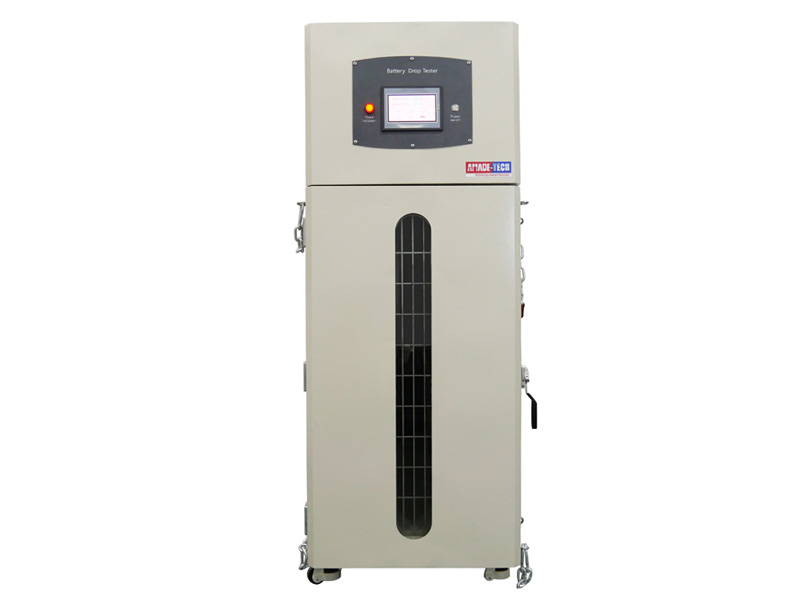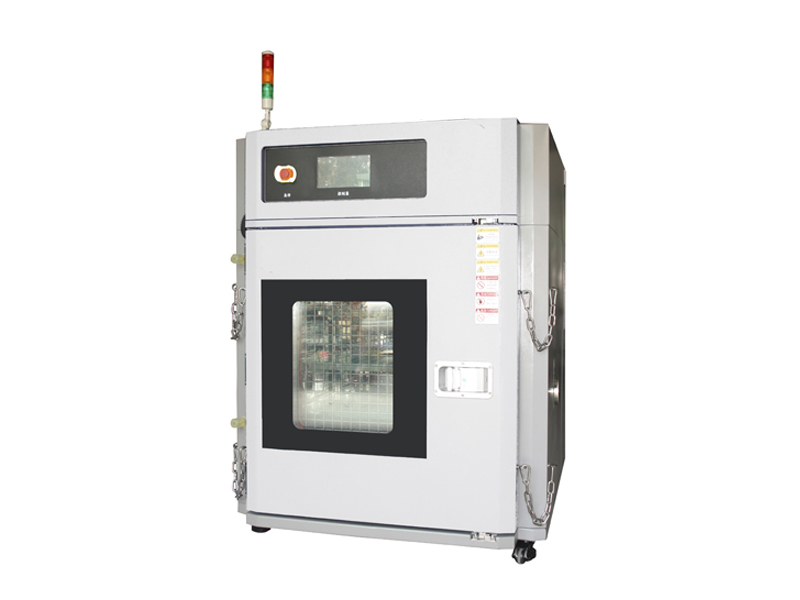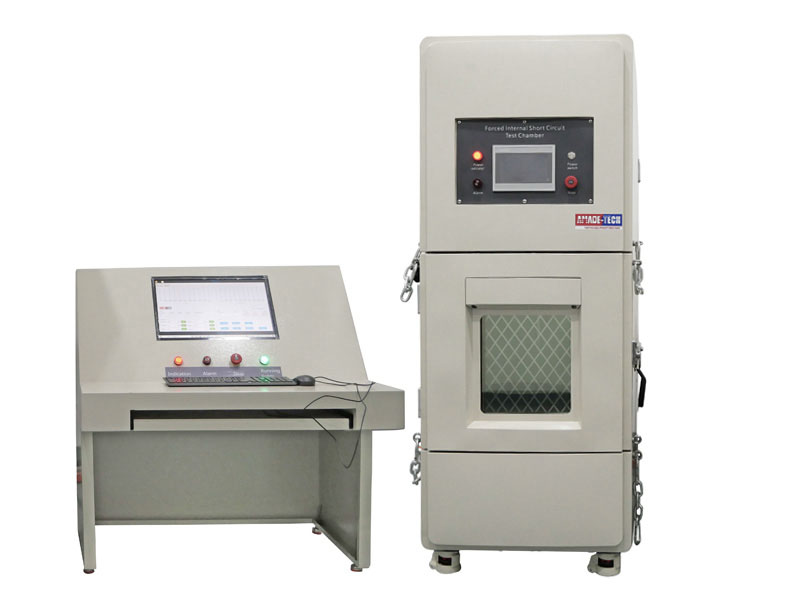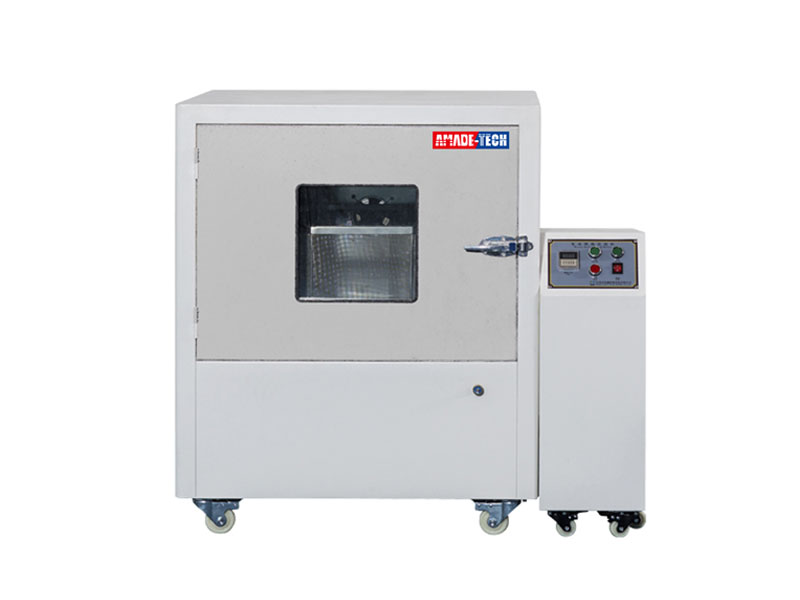Lithium-ion battery safety testing equipment is used to simulate various environments that lithium-ion batteries or cells may undergo in regular use and forcedly apply various extreme adverse encounters beyond normal conditions during use, transportation, and storage to lithium-ion batteries or cells. Whether there is any abnormality in the sample during the test or within a specified time after the test is inspected to determine the safety and reliability of lithium-ion batteries or cells. The tests that can be performed by lithium-ion battery safety testing equipment include temperature cycling test, thermal abuse test, high altitude low-pressure simulation test, vibration test, shock test, external short-circuit test, forced internal short-circuit test, drop test, crush test, impact test, nail penetration test, burning test, etc. These test items mainly apply to various lithium-ion cells such as 18650 cells and prismatic cells, lithium-ion batteries, lithium-ion battery modules, lithium-ion battery packs, and so on.
What Are the Main Test Standards that Lithium-ion Battery Testing Equipment Complies with?
- UN38.3
- IEC 62133-2
- UL 1642
- UL 2054
- IEC 62660-2
- IEC62660-3
- IEC 62619
- EN 50604-1
- ISO 12405-1/2
- ISO 12405-3, etc.
Equipment List for UN38.3 lithium-ion Cell and Battery Safety Testing
| Testing Equipment | Test Items |
| High altitude low pressure test chamber | T.1 Altitude simulation |
| Thermal test chamber | T.2 Thermal test |
| Electrodynamic vibration test system | T.3 Vibration |
| Mechanical shock tester | T.4 Shock |
| External short circuit tester | T.5 External short circuit |
| Impact tester & Crush tester | T.6 Impact/Crush |
| Explosion-proof battery test chamber
Battery charge and discharge tester / Rated DC power supply |
T.7 Overcharge |
| Explosion-proof battery test chamber & Programmable DC electronic load | T.8 Forced discharge |
Equipment List for IEC 62133-2 lithium-ion Cell and Battery Safety Testing
| Testing Equipment | Test Items |
| Battery charge and discharge tester / Rated DC power supply
Explosion-proof battery test chamber |
7.2.1 Continuous charging at constant voltage(cells) |
| Thermal abuse test chamber | 7.2.2 Case stress at high ambient temperature (batteries) |
| External short-circuit tester | 7.3.1 External Short-circuit (cells) |
| 7.3.2 External Short-circuit (batteries) | |
| Battery drop tester | 7.3.3 Free fall |
| Thermal abuse test chamber | 7.3.4 Thermal abuse (cells) |
| Crush tester | 7.3.5 Crush (cells) |
| Explosion-proof test chamber
Rated DC power supply / Programmable DC electronic load |
7.3.6 Over-charging of battery |
| 7.3.7 Forced discharge (cells) | |
| Electrodynamic vibration test system | 7.3.8.1 Vibration |
| Mechanical shock tester | 7.3.8.2 Mechanical shock |
| Forced internal short-circuit tester | 7.3.9 Forced internal short circuit(cells) |
What Abuse/Reliability Tests Are Lithium-ion Safety Test Equipment Used for?
In order to ensure the safety of lithium-ion batteries, domestic and foreign institutions and organizations have formulated corresponding safety testing standards for various lithium-ion batteries. The general testing standards generally divide the safety testing items into the following four types:
| Types | Test Items |
| Electrical abuse testing | Overcharge test, Over-discharge test, external short circuit test, forced discharge test, etc. |
| Mechanical abuse testing | Crush test, nail penetration test, mechanical shock test, vibration test, drop test, impact test, etc. |
| Thermal abuse testing | Temperature cycling test, Thermal abuse test, etc. |
| Environmental simulation testing | High altitude low pressure simulation test, salt spray test, etc. |
Why Conduct Lithium-ion Battery Safety Tests?
Conducting Lithium-ion battery safety tests is an essential means for manufacturers to verify whether the design goals on safety have been achieved
Due to the strong activity and high energy density of lithium, there are many hidden dangers to the safety of lithium-ion batteries. Lithium-ion battery manufacturers must fully consider the safety during transportation, storage, and use when designing a lithium-ion battery. From the selection of raw materials to the production process, the finished product’s safety must be considered. When a cell is produced, we need to use the specified lithium-ion battery testing equipment to test it according to the corresponding standards to check whether the tested battery has reached the original design goal.
Conducting lithium-ion battery safety tests is an important method to reduce battery safety accidents
With the wide application of lithium-ion batteries in mobile communications, electronic appliances, electric vehicles, and other fields, safety incidents occur from time to time, so the safety performance of lithium-ion batteries has always attracted much attention. Lithium-ion batteries need to be evaluated and tested for safety performance before application so as to avoid safety risks that may occur during use, resulting in dangers such as battery short-circuit or explosion, which may lead to personal injury and property damage. If we perform all safety tests on lithium-ion batteries before they leave the factory, it can effectively ensure the safety of lithium-ion batteries in use, transportation, and storage from the source.
We test on lithium-ion batteries for overcharge, over-discharge, short circuit, etc., to determine whether the protection device of the battery can take timely action to cut off the current loop and prevent the occurrence of dangerous events when the lithium-ion battery is abnormal. By testing the lithium-ion battery for vibration, shock, low pressure, temperature cycles, etc., we can know whether it can normally work in different external environments and whether abnormal and unsafe events will occur, and then determine their reliability and stability.
In a word, battery safety accidents can be effectively reduced by doing lithium-ion battery safety tests.

Conducting Lithium-ion battery safety tests is a necessary procedure for safe transportation
In today’s globalized world, if you want to achieve long-distance transportation between countries, air transportation or ocean shipping is the primary option. For the transportation of lithium batteries or products with lithium-ion batteries, whether by sea or air, the UN38.3 test report must be issued. The shipping company will not accept your shipment if you do not have this report. And UN38.3 is the test standard for lithium battery safety, which covers 8 test items. Therefore, lithium-ion battery safety testing is a necessary precondition for your batteries or products containing batteries to achieve international transportation.
Conducting Lithium-ion battery safety tests is an effective way to improve your corporate image
All lithium-ion battery safety test items are derived from corresponding standards, such as IEC, UL, ISO, etc. The makers of these standards are all internationally renowned institutions or organizations. Their popularity is well known in countries all over the world. If your product can pass these test standards, it means that the product quality has been verified, and the market will give you more trust and support. A safety inspection certificate is a business card for your product, which can effectively improve your corporate image.
Where to Find Lithium-ion Battery Testing Equipment for Sale?
If you are confused about where to find a reliable battery testing equipment supplier, AMADE TECH is one you can count on. We have many years of experience designing and manufacturing lithium-ion battery testing equipment. Providing customers with quality and affordable testing equipment is our corporate mission. In order to ensure the stability and reliability of equipment, many core components of our Lithium-ion battery testers are made of world-class brands. Here, you can buy a complete set of Lithium-ion battery test equipment based on UN38.3, IEC 62133, UL, and other standards, which saves you the trouble of looking for multiple suppliers and ensures consistency of product quality. The one-stop solution saves you a lot of time and effort.
AMADE TECH can provide you with flexible product solutions. For each battery testing device, we will recommend different configurations and styles according to different specifications and test requirements of your battery samples so as to avoid performance waste and help you save costs. We can also add corresponding configurations for you if you have additional security requirements. In short, We only give customers the most matching test equipment.
The price of battery testing equipment from AMADE TECH is also quite affordable. Relying on the global perfect supply chain and China’s labor cost advantage, we have been improving efficiency and service level under the premise of strictly controlling the quality to improve our products’ market competitiveness. We have also established a complete after-sales service team to avoid customers’ worries. AMADE TECH is committed to providing customers with affordable battery testing equipment and contributing to the development of the global lithium-ion battery industry with practical actions. We are honored to be on the list of lithium-ion battery safety testing equipment manufacturers recommended by Metoree.
If you have any questions, please contact us now.



